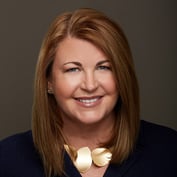What You Need to Know
- Research from Carson Group and Hidden Insights Group reveals the main challenges women face in pursuing this career.
- Female advisors work more effectively in teams and prefer hybrid compensation models, the research found.
- They put a high value on advanced training and mentorship.
Women make up less than one-fifth of the financial advisor population in the U.S., an imbalance Carson Group wants to help rectify.
The firm recently partnered with Hidden Insights Group to dig into the main challenges women face in choosing a career as a financial advisor. The study finds that three in five participants consider “firm culture and leadership” their chief hurdle when joining the industry.
Balancing the needs of career and family has led to the perception that female advisors are less committed or engaged than their male counterparts.
“Women account for an increasing amount of wealth in this country, and it’s imperative that we tap their unique perspective as we reinvent the advisory profession and financial services in general,” said Carson Group Co-President Teri Shepherd in a statement.
“One of the things we learned is that women perform more effectively with a concept called ‘teaming’ — a functional structure that supports and highlights each member of the team for the specialties and skill sets they bring to the client experience, rather than the more traditional practice we’ve seen for decades, where a single advisor, primarily male, is solely spearheading the direction of the firm,” Shepherd explained.
The participants in the quantitative and qualitative survey include 60 elite female wealth advisors and financial planners from around the country, most with more than a decade of professional experience and upward of 50 clients, according to Carson Group and Hidden Insights Group.
Female Advisor Preferences
Female advisors in the survey prefer hybrid compensation models (salary and variable compensation), which they view as providing some level of financial security; they also value the support of a team-based structure.
Forty-seven percent believe client referrals are a cornerstone of their practice, making this the most effective sales approach for women, according to the study.
More than half of participants say mentoring and coaching are critical to their development as advisors.
Female advisors prioritize the need for enhanced training programs that focus on relationship building, financial planning and operational excellence, as well as more intentional mentorship programs with more female leaders available to mentor.
Though challenging to implement with the default organizational chart, teaming should be a priority because of its multiple benefits, according survey participants, who believe teaming increases opportunity for personal development, builds an effective succession plan and delivers a more compelling client experience.









 July 08, 2021 at 11:19 AM
July 08, 2021 at 11:19 AM











